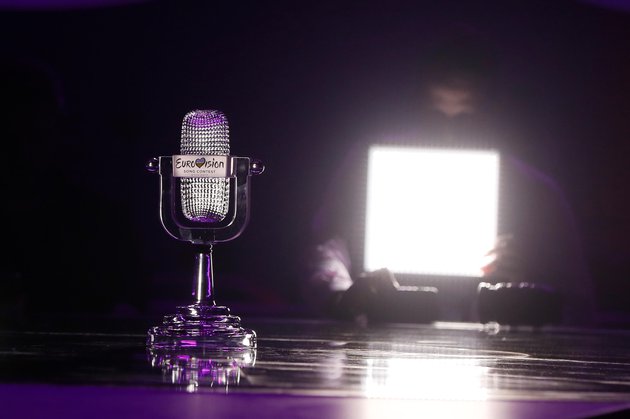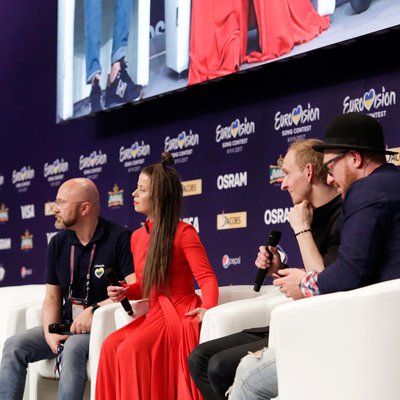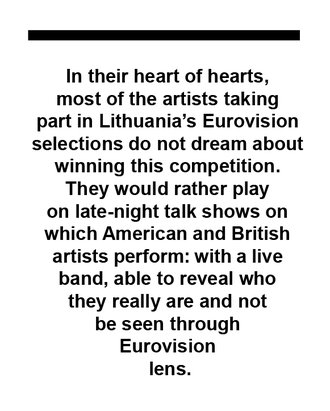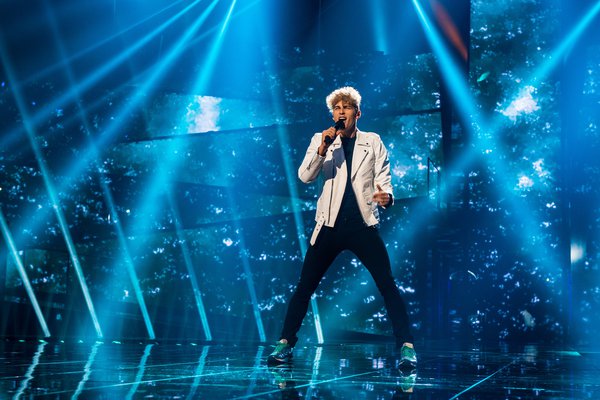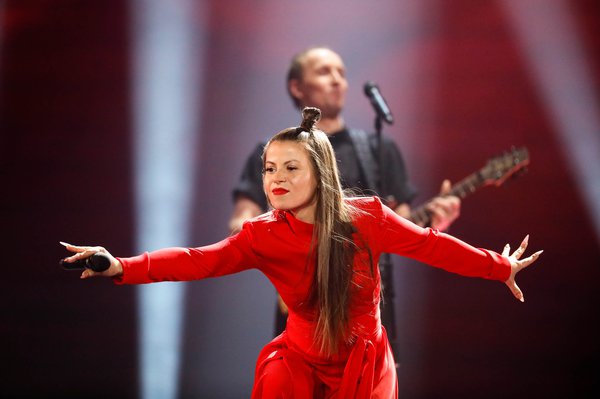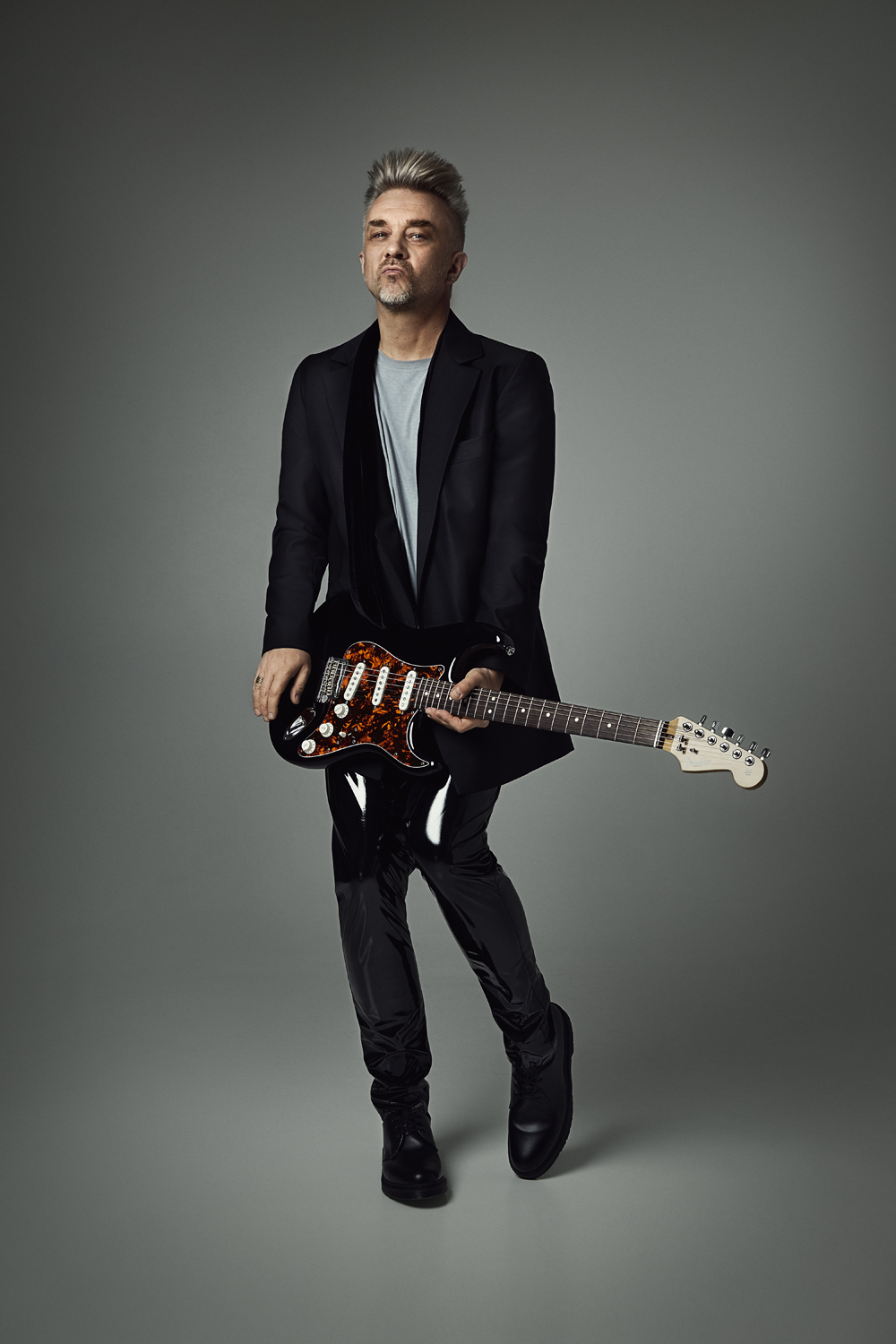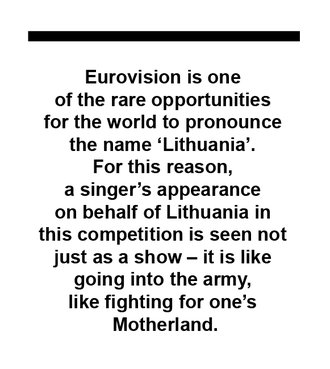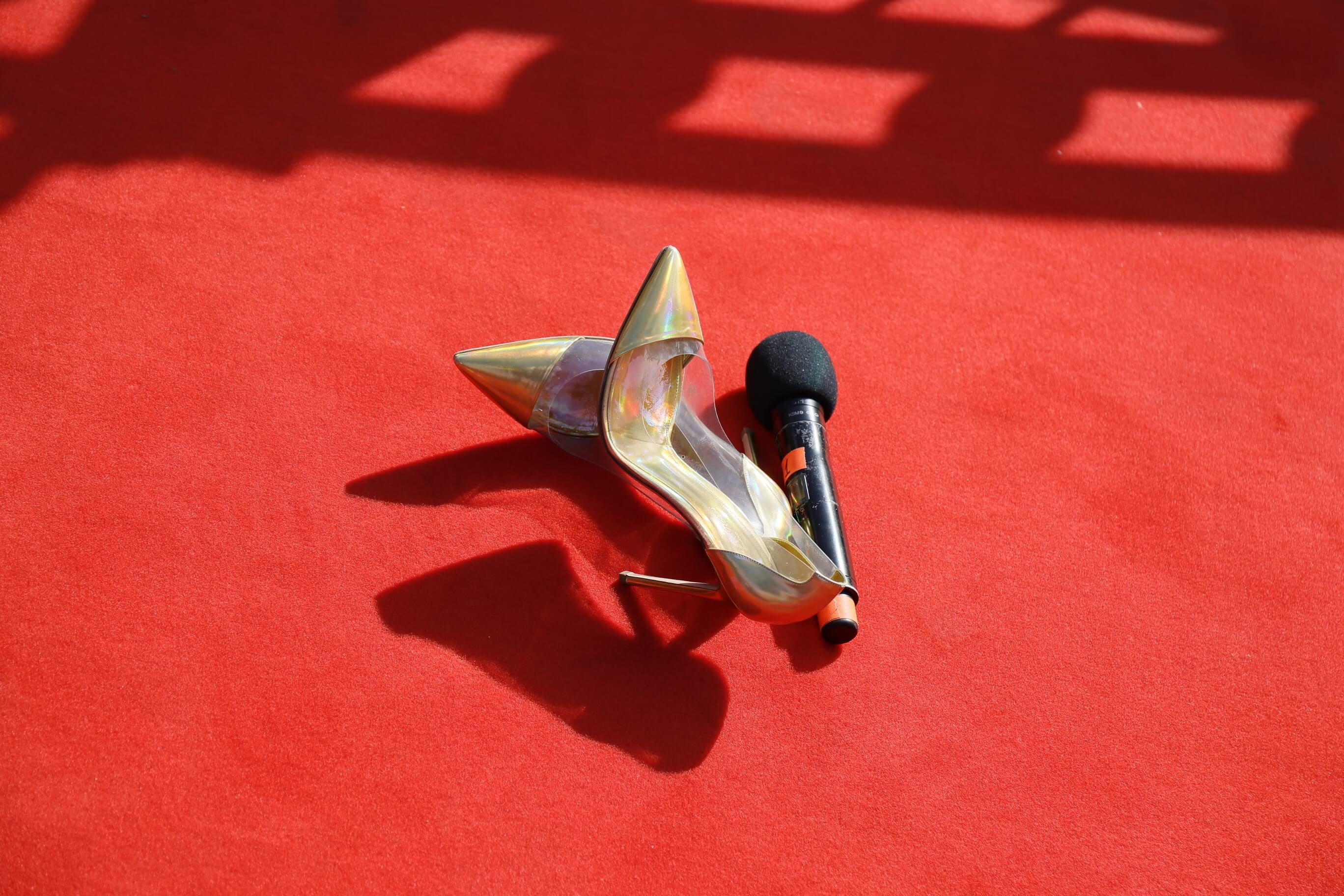Karolis VYŠNIAUSKAS | Lithuania’s Eurovision Curse
Lithuania has never won Eurovision, but the contest has changed the country’s pop scene – and the country itself. How did Europe’s most enjoyable music show become such a serious matter here?
Last spring, Lithuania’s national broadcaster LRT announced the news that did not surprise anyone: the Eurovision final had once again become the most watched TV programme in the land. Over half a million viewers in a country of less than 3 million tuned in. Then, in 2016, the curly-haired Donny Montell landed in ninth place – the country’s second-best showing since 1994, when Lithuania first got a seat at the Eurovision table.
The only Lithuanian act that Donny Montell couldn’t overtake was LT United, a group consisting of Lithuania’s most prominent male singers and one possessed dancer, who placed sixth in 2006. Their ironic anthem ‘We Are the Winners’ also brought Lithuania the very first story by Pitchfork: “What do you think would happen at your office holiday party if all your middle-age managers decided to quit their day jobs and start a boy band? They’d probably enter Eurovision for Lithuania.”
This year, the Lithuanian duo Fusedmarc sang about revolution but did not make it to the Eurovision final. They did achieve a personal victory, however. Fusedmarc showed that even alternative artists can win not only votes from the national jury but also the public. That the Lithuanian Eurovision selection process, as opposed to what some viewers think, is not choreographed in advance.All the same, the example of Fusedmarc revealed the paradox of Lithuanian music: if you are not in Eurovision, you are nowhere.
Fusedmarc started out in 2004 by playing trip-hopish, Björk-inspired music. They were the clearest and almost the only example in Lithuania doing that. Their career was far from perfect: after the highly praised debut EP, Fusedmarc did not release any new music, becoming frozen in time as ‘eternally promising’. But they went on playing concerts and did not give up. Their cold, mechanical sound was a protest against the sugar-sweet culture of Eurovision. However, Fusedmarc needed this competition for all of Lithuania to know about them. As long as the duo was treading its own path no one wanted to turn TV cameras on them.
A platform for new acts
Eurovision became a way to reach a wider audience for new Lithuanian female singers such as Ieva Zasimauskaitė, Paula or Greta Zazza. Many of the country’s now well-known performers would not exist without Eurovision. Donny Montell, Edgaras Lubys (ex Amberlife), Sasha Song, even Gravel, who were called ‘Lithuania’s answer to Oasis’ – Eurovision’s selection process helped them all achieve a new level of national success.
However, in their heart of hearts, most of the artists taking part in Lithuania’s Eurovision selections do not dream about winning this competition. They would rather play on late-night talk shows on which American and British artists perform: with a live band, able to reveal who they really are and not be seen through Eurovision lens. But there are no such programmes on Lithuanian TV. And so local performers enter this competition because they know it is the only way to get on TV if you do not want to sing covers on The X Factor.In the 1990s, the national broadcaster used to organise top-ten song programmes for Lithuanian bands to make their debut. All that is left today are the Eurovision selections. It is not a coincidence that the Lithuanian selection process is one of the longest in Europe. Most other countries simply choose their representative and that’s that. But the purpose of the Lithuanian selections has never been to simply select the country’s representative. The goal is to organise a music show and create a platform for new talent. That is not bad in itself. The problem arises when a good performance is one that is good for Eurovision. Eurovision is a competition in which a dancer stands on a ladder wearing a horse’s head and no one is playing live. It is a completely different musical planet. The illusion has been created in Lithuania that this planet is the one to aspire to.
The representatives of niche music scenes in Lithuania are finding ways to reach listeners in the West. DJ and producer Manfredas has recently played at Burning Man festival, as well as at the first Boiler Room show in Vilnius. The influential American alternative music website Stereogum has written about the metal band’s Au-Dessus upcoming album as one of their most anticipated. Even Ten Walls, Lithuanian house music producer, who infamously made homophobic comments on Facebook and was dropped from his label and many international festivals, at first proved that if you are talented, geographical borders only exist on a map. This year’s surprise in Lithuania has been Junior A, a young introvert who records dreamy music in his room at home. He got onto the Spotify US Viral playlist together with Frank Ocean and Lana Del Rey. “No more than two weeks had passed after uploading the song that I got my first letter from Sony Entertainment. Three days after that I got letters from Universal Music, Capitol, Columbia and a dozen small record companies. I’d like to tell you more, but for the time being I can’t,” he said in an interview to the magazine 370. In other words, it’s possible.
The Lithuanian pop music scene, however, has had no such successes. This is why Donny Montell wants to take part in Eurovision for a third time. Because that is the highest international experience that a pop singer can get in Lithuania. Some of Lithuania’s pop scene local leaders like SEL, Džordana Butkutė or Kastytis Kerbedis don’t need Eurovision to fill an arena in Vilnius or Kaunas. But for singers like Donny who have ambitions on an international level, Eurovision is the only option – at least as long as they work with current local managers. So, the Eurovision selections are vital for the Lithuanian pop scene in order to support the existence of singers, to give them hope that they will be noticed in the world. But there is something more as to why Lithuanians are so involved in this competition.A door to the West
Eurovision for Lithuania became a door to Western Europe – a world from which the country was separated for 50 years. On the other hand, the scale of Lithuanian emigration is gigantic. Since the beginning of independence almost a million people have left Lithuania. Many of them are in the United Kingdom, Norway, Spain, and Ireland. They are already in the West. However, not all of them have been living on equal footing with the locals.
Eurovision allows one to feel that Lithuania’s involvement in Europe has already happened. The competition gives the participants from all countries the same stage and the same amount of time. Eurovision works on the principle of European equality. ‘Celebrate diversity’ – everyone is different, everyone is equal. There are practically no other such spaces not only in pop music but also in other spheres of popular culture. Eurovision is one of the rare opportunities for the world to pronounce the name ‘Lithuania’. For this reason, a singer’s appearance on behalf of Lithuania in this competition is seen not just as a show – it is like going into the army, like fighting for one’s Motherland. Lithuania’s Eurovision representative is chosen by a jury that includes an opera soloist and the conductor of a state orchestra – people who have little in common with pop music or the camp aesthetics of Eurovision. But they feel a duty to be here. Because it is a serious matter – it’s Eurovision!
It does not matter that this is a competition in which you can see a Dracula singing falsetto to disco music. We understand it as a serious musical battle, even though many Western European countries see Eurovision as colourful, gay, strange and proud of these qualities. That is the beauty of this competition and the reason for its existence.
Hunger for victory
Lithuania is not the only country that takes Eurovision seriously. Every year, Russia puts tons of money into their performance in order to show that it can defeat other European countries, while Russia itself is in opposition to liberal Western culture. In a poll listing the most important annual events to the Swedish people, their birthdays came first, the Midsummer celebration took second place, and Melodifestivalen, the Swedish Eurovision selection competition, was third. Christmas came in only fourth.
All the same, Lithuania’s relationship with Eurovision is a very specific one. Unlike the above-mentioned countries, Lithuania has never won the competition. Adding insult to injury is the fact that out of 18 attempts, it finished in the bottom third of the scoreboard five times, didn’t make it to the final six times, and came last a couple of times.
That is nothing out of the ordinary. Iceland has never won the competition – even though they have Björk, Aurora and Of Monsters and Men. Poland, the Czech Republic, and Hungary have also never won. The United Kingdom, Europe’s music leader, the home of the Beatles, Bowie and Kate Bush, has not won Eurovision in the last twenty years, and has come last three times since 2003. They are not too worried about it – if they were, they would send Adele to this battle.
However, both Latvia and Estonia have won Eurovision. For Lithuania, that is a historic injustice. The three Baltic countries share a common history and a joint battle for independence. We joined hands along the Baltic Chain, in a beautiful peaceful protest against Soviet occupation. But the three countries have also been rivals, competing to get ahead of each other. Estonians created Skype and e-government. Latvians have developed the largest Baltic music festival Positivus and… have won Eurovision. Lithuanians are good at basketball, called the national religion – the Lithuanian team have been Europe’s champions and twice won silver. The basketball victories brought a feeling of national strength: perhaps we have not been as successful in history as other countries, perhaps our wages are lower, and we work harder but are poorer. But our basketball players will defeat you.
However, a victory in music cannot be passed up. The constant Eurovision defeats have introduced an inferiority complex into Lithuanian society. Andrius Mamontovas, perhaps the most famous singer in independent Lithuania and a member of LT United, was not joking when he called Eurovision a ‘national tragedy’.
This year, Portugal won Eurovision for the first time since 1963, the year when they started taking part in it. They did that by performing a song that was a quiet, jazzy, romantic ballad. Their vocalist seemed relaxed and modest. It is questionable whether Lithuania’s Eurovision jury would have liked it. Formed every year of mostly the same people and often missing the mark, the jury would probably have said that the performance is not Eurovision-like.Perhaps if one day Lithuania were to win this competition, it will become of no interest to Lithuanians. In the same way that basketball for many in Lithuania became of no interest after the European basketball championship was held here. It was interesting to see how this celebration looked from up close, but after it finished – with Lithuania’s team not winning – people wanted to move on. Then swimming came to the fore with Rūta Meilutytė breaking world records.
However, for as long as victory eludes us, the goal to win Eurovision is one of the factors moving Lithuania as a nation forward. We are not aiming to create our own version of Skype, we do not exhibit progressive political ambitions, such as legalising marijuana or making same-sex marriage legal – things that would immediately push Lithuania into prominence in a Western European context. Winning Eurovision seems to be more important.
Lithuania has not invested more money in Eurovision than anyone else, nor is it the country that understands the crazy aesthetics of this competition best. But in their hearts, Lithuanian viewers who faithfully watch this show every year and quietly hope that ‘perhaps this year!’ are its biggest fans.
Eurovision is here to stay
As a music journalist in Lithuania, you both love and hate Eurovision. You understand that on the colourful map of world music this competition is a remote island on which there is a party going on the whole time. An Erasmus Party for those who have already graduated from university. It is so much fun that you want to pinch yourself and remind yourself: this is not normal. What you see in Eurovision has nothing to do with the real situation in European music.
Artyom Troitsky, the legendary Russian music critic, was asked why he stopped commenting on music. His reply: “Because every time I was asked to express my opinion on music, it was about Eurovision.” He worked to make sure that during the Soviet period groups like Sonic Youth could reach Lithuania. But what news website will want to write about the new Kim Gordon’s memoir when Italy’s Eurovision entry decides to invite a MONKEY onto the stage?You start to hate Eurovision and all the people buzzing about it. You want to tell them to stop taking this competition so seriously. You listen to the new local band on Bandcamp and you get angry at the world, because no one will ask you to comment on their music.
But then you realise that’s what Eurovision is. That it is one of the nicest things that Europe, the continent that initiated two world wars, has created. Glittering costumes, eurotrash dances and grandiose ballads are the essence of Eurovision. It brings Europeans together to party, not fight. Rather than unsuccessfully ignoring this competition, it is best to dive into it. Because Eurovision is not going to go away soon. At least not in Lithuania.
Translated from the Lithuanian by Romas Kinka. Updated version edited by Rasa Radzevičiūtė.
